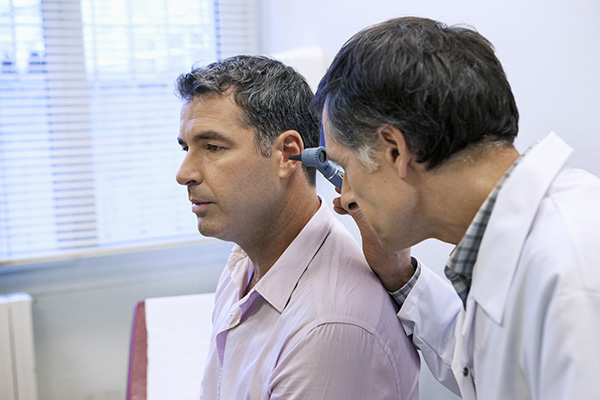Explaining Hearing Loss to Your Loved Ones
Living with hearing loss isn’t always easy. However, with the right

By: admin | March 18, 2019
Every year, millions of people suffer some form of hearing loss. Hearing loss can leave you feeling confused and vulnerable, wondering what your options are and how best to proceed.
Before investigating any forms of treatment or assistive hearing devices, it’s best to go to an audiologist for a professional hearing test. These tests are non-invasive and can help determine the nature and extent of your hearing issues.
A range of factors can cause hearing loss. Many people experience mild hearing loss, for instance, because of impacted cerumen (earwax) blocking sound waves from traveling up the ear canal to the eardrum. Others suffer hearing loss because of injury to the head or infections.
Often, though, hearing loss is the result of problems with the machinery of the inner ear itself. In these situations, more long-term treatment options are required. During the hearing exam, the audiologist will visually inspect your ear to determine whether the problem is anything superficial and then ask you questions about when you first started noticing problems. Remember, many causes of hearing loss are benign, so going to see a specialist can help you avoid worry and stress.
Audiologists know that hearing can start to fail in all sorts of different ways. Everybody’s ears are different. Because of this, they have devised a series of tests which probe various aspects of your ability to process auditory signals. Once the tests are complete, your audiologist should have a good idea of your strengths and weaknesses, allowing them to recommend the correct treatment.
Most hearing tests happen inside a booth where the patient wears a pair of headphones. The audiologist then pipes sounds through to the headphones and the patient pushes a button when they hear a noise. No external cues accompany the sounds – like the movement of a person’s lips – to prevent patients from reporting having heard noises that they cannot actually hear.
During the hearing test process, you may have the following exams:
Most hearing tests are completed between one and two hours, depending on the nature and extent of your hearing problems. Some tests can finish earlier if an obvious cause of hearing loss is detected.
Audiologists need to see your medical history to find out whether any preexisting conditions or medications might be having an impact on your hearing. Sometimes hearing issues can result from undiagnosed but transitory illnesses, such as tinnitus.
Your ears are a complex system and need to be treated as such. Today’s hearing tests provide practitioners with a wide variety of digital outputs to fully characterize any hearing loss. These outputs can then be used to offer advice on the treatment options available to you.
At Peninsula Hearing, our audiologists provide painless, non-invasive hearing tests and can provide information on whether you need hearing aids. All hearing tests are entirely painless. Speak to our friendly team today by calling our Poulsbo office at (360) 697-3061 or (360) 379-5458 for Port Townsend.

Living with hearing loss isn’t always easy. However, with the right
By: admin | September 30, 2022

Many patients assume that they should take off their hearing aid while
By: admin | August 17, 2022

Tinnitus is a condition in which patients experience sound without any
By: admin | August 3, 2022
